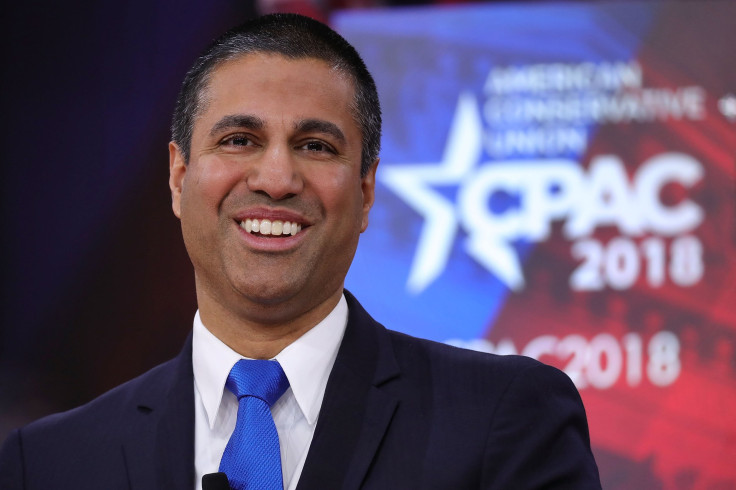Intelsat Stock Price Plunges 40% As Ajit Pai Confirms C-band Spectrum Auction

An appalling announcement from the U.S. Federal Communications Commission (FCC) sent shares of satellite firm Intelsat Corporation crashing more than 40% Monday in what might well be the company's biggest single day loss on Wall Street.
Intelsat, which had a market cap of about $1.8 billion before trading began Monday, ended the day at $1.13 billion, a 37% plunge. Its stock plummeted 40% to $8.03 at the end of regular trading in heavy trading volume and sank further to $7.88 in after hours. The stock opened at $14.03.
Catalyst for Intelsat's horrific Monday was an announcement by FCC chairman Ajit Pai that effectively means Intelsat and its partners in the C-Band Alliance (CBA) must surrender to the federal government their lucrative C-band spectrum to "free up significant spectrum” for 5G telecommunications. The surrender of the C-band will mean billions of dollars in losses for satellite operators.
In a tweet, Pai said the FCC will begin a public auction of the C-band spectrum before the end of 2020.
Analysts said the FCC annoucement of a public auction of the C-band is a massive blow to Intelsat and other satellite operators that currently rely on this valuable spectrum for a huge chunk of their revenues. The FCC announcement also means satellite companies won't be able to recoup the value of their massive C-Band investments in satellites and their associated terrestrial networks.
The C-band (4 GHz to 8 GHz) is used for many satellite communications transmissions, some Wi-Fi devices, and surveillance and weather radar systems. The communications C-band -- long considered a cash cow by satellite operators -- was the first frequency band allocated for commercial telecommunications via satellites.
CBA consists of Intelsat, SES S.A., Eutelsat S.A. and Telesat.
Pai explained his decision to go for a public auction instead of a private auction favored by CBA. A public auction would see the proceeds, estimated in the tens of billions of dollars, go to the government, with practically nothing going to satellite operators.
“I’ve concluded that the best way to advance these principles is through a public auction of 280 megahertz of the C-band,” tweeted Pai. “I’m confident they’ll quickly conduct a public auction that will give everyone a fair chance to compete.”
Pai also said he's "outlined four principles that the @FCC must advance regarding C-band spectrum: we must (1) free up significant spectrum for #5G, (2) do so quickly, (3) generate revenue for the federal government, and (4) ensure continued delivery of services currently using the C-band."
After much deliberation and a thorough review of the extensive record, I've concluded that the best way to advance these principles is through a public auction of 280 megahertz of the C-band conducted by the @FCC's excellent staff.
— Ajit Pai (@AjitPai) November 18, 2019
Instead of a public auction, the CBA last week handed the FCC a proposal where satellite operators will keep some of the proceeds while paying taxes on the sale. It also plans to contribute at least $8 billion to the U.S. Treasury and might help fund a rural 5G network.
“The private auction would generate billions in proceeds for Intelsat and the other C-band operators,” said Chris Quilty, president of satellite financial services firm Quilty Analytics, told CNBC. “The potential C-band proceeds gave Intelsat a path for deleveraging, which has otherwise escaped the company for the past 10 years.”
He said CBA was expecting an $8 billion to $10 billion windfall from a private auction of the C-band spectrum.
© Copyright IBTimes 2025. All rights reserved.





















